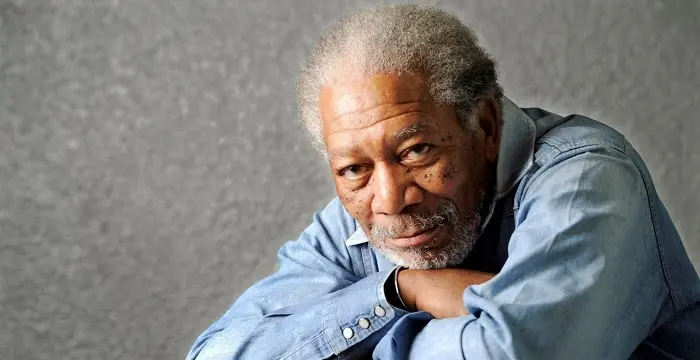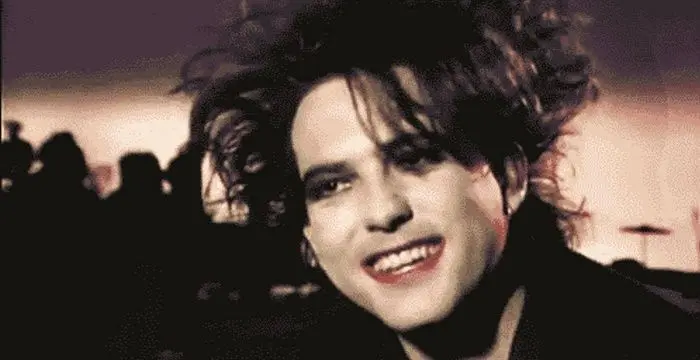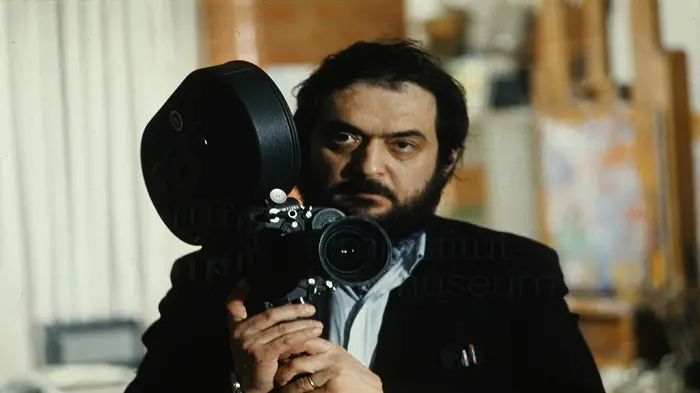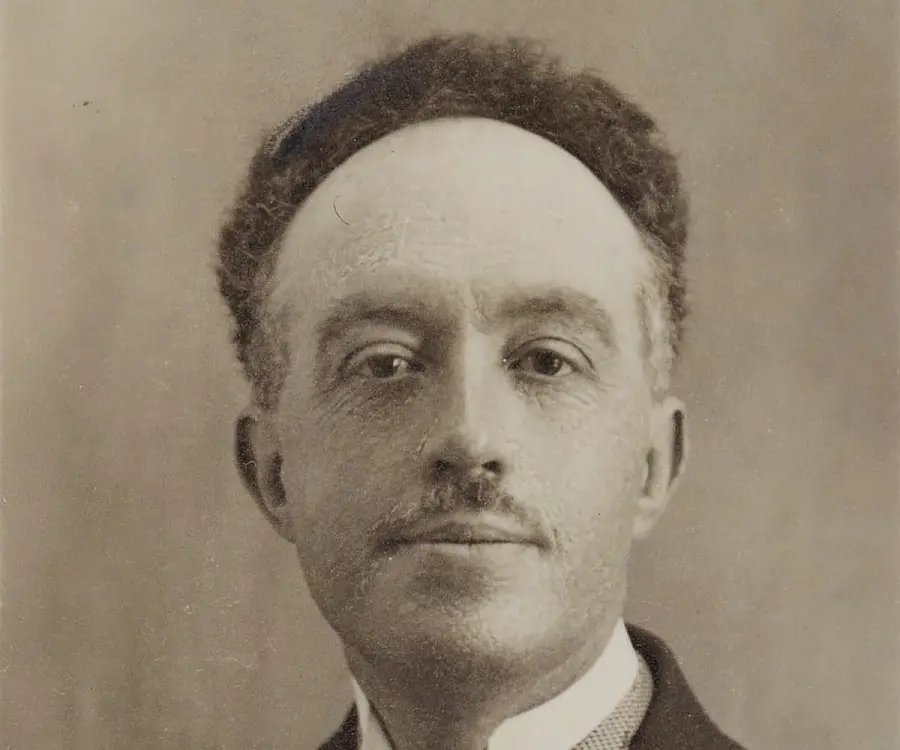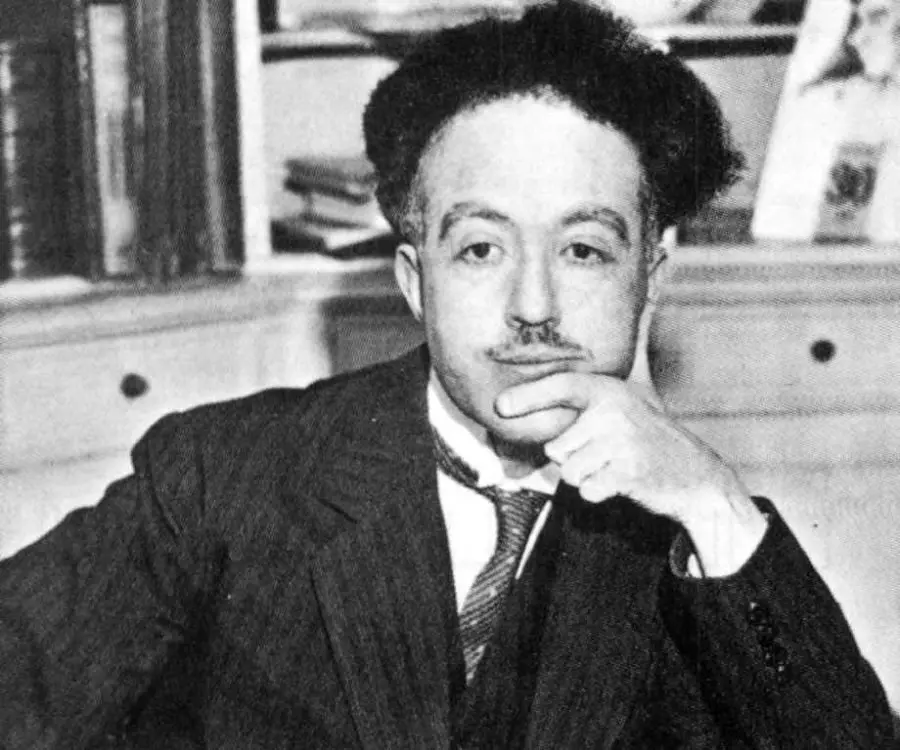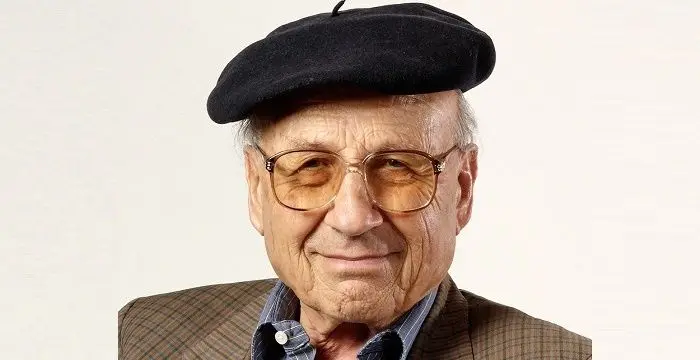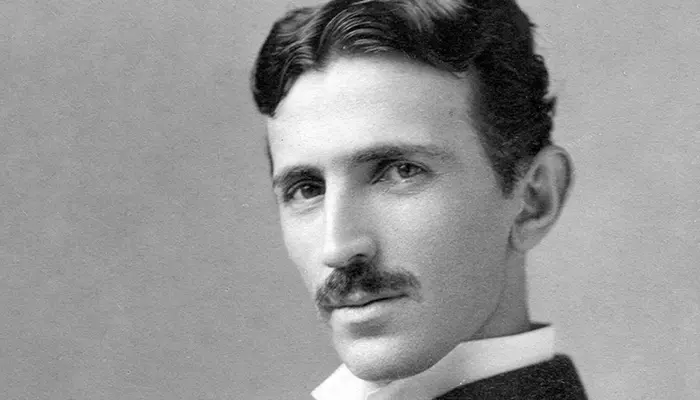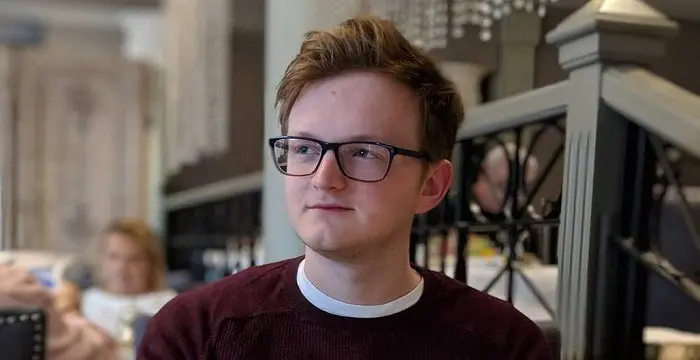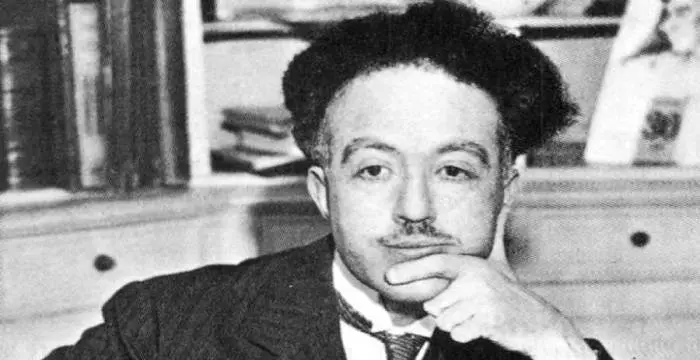
Louis de Broglie - Physicists, Family and Life
Louis de Broglie's Personal Details
Louis de Broglie was a distinguished French physicist who made significant contribution to quantum theory
| Information | Detail |
|---|---|
| Birthday | August 15, 1892 |
| Died on | March 19, 1987 |
| Nationality | French |
| Famous | Atheists, Scientists, Physicists |
| Siblings | Maurice de Broglie |
| Known as | Louis-Victor-Pierre-Raymond de Broglie |
| Universities |
|
| Birth Place | Dieppe |
| Gender | Male |
| Father | Victor de Broglie |
| Sun Sign | Leo |
| Born in | Dieppe |
| Famous as | Physicist |
| Died at Age | 94 |
// Famous Atheists
Morgan Freeman
Morgan Freeman is an Academy Award winning actor known for his work in movies like ‘Street Smart’, ‘Driving Miss Daisy’ and ‘Million Dollar Baby’. This biography provides detailed information about his childhood, life, achievements, works & timeline.
Robert Smith
Robert Smith is an English musician and the lead singer of the British rock band, ‘The Cure.’ This biography of Robert Smith gives detailed information on his profile, childhood, life and timeline.
Stanley Kubrick
Stanley Kubrick was a screenwriter and film director known for his movies like ‘The Clockwork Orange’ and ‘The Shining’. This biography of Stanley Kubrick provides detailed information about his childhood, life, achievements, works & timeline.
Louis de Broglie's photo
Who is Louis de Broglie?
Louis de Broglie was an eminent French physicist who predicted the wave nature of electrons and suggested that all matter has wave properties. This concept forms the core of the quantum mechanics and for his groundbreaking contribution to quantum theory, de Broglie won the Nobel Prize for Physics in 1929. Born in an aristocratic family, Broglie along with his brother defied the family tradition of serving as diplomats by taking up science. Interestingly, Broglie’s first love was history but he was soon enticed by the mysteriousness of science and made his foray into the subject. While doing research for his PhD thesis he unearthed the wave nature of electrons, thus leading to the discovery of a new field of physics, wave mechanics. Throughout his life, he held important academic positions including seat 1 of the Académie française, and as the Perpetual Secretary of the French Academy of Sciences. He made major contribution in fostering international scientific co-operation. In his life, de Broglie was recognized by prestigious institutions and was awarded with highly-esteemed honours
// Famous Physicists
Henry Cavendish
Henry Cavendish was a theoretical chemist and physicist, renowned for discovery of hydrogen and calculation of the mass of earth. To know more about his childhood, profile, timeline and career read on
Walter Kohn
Nobel Laureate Walter Kohn was an Austrian-born American theoretical chemist and physicist. Check out this biography to know about his childhood, life, achievements, works & timeline.
Nikola Tesla
Nikola Tesla was a Serbian-American inventor, best known for his development of alternating current electrical systems. This biography of Nikola Tesla provides detailed information about his childhood, life, achievements, works & timeline.
Childhood & Early Life
Louis de Broglie was born on August 15, 1892 to Victor, 5th Duc de Broglie and Pauline d’Armaille in Dieppe, Siene-Maritime. He had an elder brother, Maurice, who too went on to become a physicist.
De Broglie completed his preliminary studies from Lycee Janson of Sailly. Initially, he desired to make a career in humanities and as such, applied himself to literary studies, later acquiring a degree in history in 1910. He was, however, soon lured by science, so much so, that in 1913, he attained a degree in physics.
Career
In 1914, with the onset of World War I, he was conscripted into the military and offered his services in the development of radio communications. He was posted at Eiffel Tower, where he spent considerable time studying technical aspect of physics.
Post World War I, he resumed his studies of general physics. He began working with his brother, Maurice, in his lab. Maurice’s work involved X-Rays, and it was here that de Broglie got the idea of wave-particle duality.
In 1924, he submitted his thesis, Recherches sur la théorie des quanta (Research on the Theory of the Quanta) at the Faculty of Sciences at Paris University. Through it, he introduced his revolutionary theory of electron waves. He was awarded a doctorate degree.
His thesis presented a series of important findings that changed the way people perceived the physical phenomena on atomic scale. Popularly known as the de Broglie hypothesis today, his postulated that any moving particle or object has an associated wave. With this, he created a new field of physics, wave mechanics that unites the physics of energy and matter.
De Broglie's hypothesis was supported by Einstein and in 1927, electron diffraction experiments of Davisson and Germer confirmed that electrons have wave like properties.
After attaining his doctorate degree, he took up teaching position at the Sorbonne, where he served for two years. Meanwhile, he continued to publish original work.
In 1928, he was appointed to serve as the professor of theoretical physics at the then newly-founded Henri Poincare Institute in Paris. He served in the position until his retirement in 1962.
In 1933, he became a member of the Académie des sciences and served as the academy’s permanent secretary for mathematical science since 1942. Though he was offered to join Le Conseil de l'Union Catholique des Scientifiques Francais, he declined the same due to his atheist beliefs.
In October 1944, he was elected to the Académie française and was received by his brother Maurice. Subsequent year, he was appointed as the advisor to the French High Commission of Atomic Energy.
Later in his career, he devoted himself to the study of the various extensions of wave mechanics. He published numerous notes and papers on the subject in addition to authoring twenty five books. In addition to scientific work, he penned about the philosophy of science, including the value of modern scientific discoveries.
His theory of wave mechanics was later refined by David Bohm in 1950s and has since been known as the De Broglie–Bohm theory.
Later in his life, he established a center for applied mechanics at the Henri Poincaré Institute, where research into optics, cybernetics, and atomic energy were carried out. Furthermore, he inspired the formation of the International Academy of Quantum Molecular Science and became an early member.
Major Works
Broglie’s developed the revolutionary theory of electron waves, which formed the basis of his research thesis paper. Based on the works of Max Planck and Albert Einstein, he worked on the wave-particle duality theory of matter and came out with the notion that every moving object or particle had an associated wave. His theory led to the creation of a new field in physics, wave mechanics. The theory was widely accepted after the experiment by Davisson and Germer proved that matter showed wave-like characteristics.
Awards & Achievements
In 1929, he was awarded the Nobel Prize in Physics for his research papers on the theory of electron waves. His revolutionary theory led to the creation of the new field of wave mechanics in physics. Same year, the Academei des Sciences bestowed him with the inaugural Henri Ponicare Medal.
In 1932, he was conferred with the Albert I of Monaco Prize.
In 1938, he received the Max Planck Medal. In the same year, he was made a Fellow of the Royal Swedish Academy of Sciences.
In 1944, he was made Fellow of the Academie francaise and in 1953 was made Fellow of the Royal Society.
In 1952, UNESCO awarded him the inaugural Kalinga Prize for popularizing scientific knowledge amongst layman.
In 1956, he received the Gold Medal of the French National Scientific Research Centre.
In 1961, he received the title of the Knight of the Grand Cross in the French Legion d’honneur and is an Officer of the Order of Leopold in Belgium.
He has received honorary doctorates from various prestigious and established universities around the globe including the Universities of Warsaw, Bucharest, Athens, Laussane, Quebec and Brussels. Additionally, he is a member of eighteen foreign academies in Europe, India and United States.
Personal Life & Legacy
Broglie lived the life of a bachelor all through.
In 1960, after the death of his older brother, Maurice, he succeeded as the 7th duc de Broglie, as Maurice left without any heir.
He breathed his last on March 19, 1987 in Louveciennes, France. He was 94 years old. After his death, he was succeeded as Duke by a distant cousin, Victor-François, 8th duc de Broglie.
// Famous Scientists
Juliane Koepcke
Juliane Koepcke is a German-Peruvian biologist, who was the lone survivor among the 92 passengers and crew of the ill-fated LANSA Flight 508 that crashed in the Peruvian rainforest on 24 December 1971. Know more about her life in this biography.
Henry Cavendish
Henry Cavendish was a theoretical chemist and physicist, renowned for discovery of hydrogen and calculation of the mass of earth. To know more about his childhood, profile, timeline and career read on
Konstantin Tsiolkovsky
Konstantin Tsiolkovsky was a Russian rocket scientist and a pioneer of astronautics. This biography provides detailed information about his childhood, family, personal life, career, achievements, etc.
Louis de Broglie's awards
| Year | Name | Award |
|---|---|---|
Other | ||
| 0 | 1929 - Nobel Prize in Physics | |
| 0 | 1938 - Max Planck Medal | |
Louis de Broglie biography timelines
- // 15th Aug 1892Louis de Broglie was born on August 15, 1892 to Victor, 5th Duc de Broglie and Pauline d’Armaille in Dieppe, Siene-Maritime. He had an elder brother, Maurice, who too went on to become a physicist.
- // 1910 To 1913De Broglie completed his preliminary studies from Lycee Janson of Sailly. Initially, he desired to make a career in humanities and as such, applied himself to literary studies, later acquiring a degree in history in 1910. He was, however, soon lured by science, so much so, that in 1913, he attained a degree in physics.
- // 1914In 1914, with the onset of World War I, he was conscripted into the military and offered his services in the development of radio communications. He was posted at Eiffel Tower, where he spent considerable time studying technical aspect of physics.
- // 1924In 1924, he submitted his thesis, Recherches sur la théorie des quanta (Research on the Theory of the Quanta) at the Faculty of Sciences at Paris University. Through it, he introduced his revolutionary theory of electron waves. He was awarded a doctorate degree.
- // 1927De Broglie's hypothesis was supported by Einstein and in 1927, electron diffraction experiments of Davisson and Germer confirmed that electrons have wave like properties.
- // 1928 To 1962In 1928, he was appointed to serve as the professor of theoretical physics at the then newly-founded Henri Poincare Institute in Paris. He served in the position until his retirement in 1962.
- // 1929In 1929, he was awarded the Nobel Prize in Physics for his research papers on the theory of electron waves. His revolutionary theory led to the creation of the new field of wave mechanics in physics. Same year, the Academei des Sciences bestowed him with the inaugural Henri Ponicare Medal.
- // 1932In 1932, he was conferred with the Albert I of Monaco Prize.
- // 1933 To 1942In 1933, he became a member of the Académie des sciences and served as the academy’s permanent secretary for mathematical science since 1942. Though he was offered to join Le Conseil de l'Union Catholique des Scientifiques Francais, he declined the same due to his atheist beliefs.
- // 1938In 1938, he received the Max Planck Medal. In the same year, he was made a Fellow of the Royal Swedish Academy of Sciences.
- // 1944 To 1953In 1944, he was made Fellow of the Academie francaise and in 1953 was made Fellow of the Royal Society.
- // Oct 1944In October 1944, he was elected to the Académie française and was received by his brother Maurice. Subsequent year, he was appointed as the advisor to the French High Commission of Atomic Energy.
- // 1952In 1952, UNESCO awarded him the inaugural Kalinga Prize for popularizing scientific knowledge amongst layman.
- // 1956In 1956, he received the Gold Medal of the French National Scientific Research Centre.
- // 1960In 1960, after the death of his older brother, Maurice, he succeeded as the 7th duc de Broglie, as Maurice left without any heir.
- // 1961In 1961, he received the title of the Knight of the Grand Cross in the French Legion d’honneur and is an Officer of the Order of Leopold in Belgium.
- // 19th Mar 1987He breathed his last on March 19, 1987 in Louveciennes, France. He was 94 years old. After his death, he was succeeded as Duke by a distant cousin, Victor-François, 8th duc de Broglie.
// Famous Leo Celebrities peoples
Eugenia Cooney
Check out all that you wanted to know about Eugenia Cooney, the famous American Vlogger & YouTube Personality; her birthday, her family and personal life, her boyfriends, fun trivia facts and more.
Princess D
Princess D (Destiny Indira Cox) is an American rapper, dancer and social media personality. Let’s have a look at her family and personal life including age, birthday, net worth, and fun facts.
Payton Moormeier
Payton Moormeier is an American social-media personality best known for his musical.ly videos. Check out this family, personal life, etc.
Grian
Grian is an English YouTube gamer and social media influencer. Check out this biography to know about his birthday, childhood, family life, achievements and fun facts about him.
Emmi Butler
Emmi Butler is an American YouTuber and social media star. Let’s take a look at her family and personal life including age, date of birth, net worth, and fun facts.
Erica Delsman
Erica Delsman is an American Musical.ly Star and social media personality. Let’s take a look at her family & personal life including age, date of birth, net worth, and fun facts.
Louis de Broglie's FAQ
What is Louis de Broglie birthday?
Louis de Broglie was born at 1892-08-15
When was Louis de Broglie died?
Louis de Broglie was died at 1987-03-19
Where was Louis de Broglie died?
Louis de Broglie was died in Louveciennes
Which age was Louis de Broglie died?
Louis de Broglie was died at age 94
Where is Louis de Broglie's birth place?
Louis de Broglie was born in Dieppe
What is Louis de Broglie nationalities?
Louis de Broglie's nationalities is French
Who is Louis de Broglie siblings?
Louis de Broglie's siblings is Maurice de Broglie
What was Louis de Broglie universities?
Louis de Broglie studied at University of Paris
Who is Louis de Broglie's father?
Louis de Broglie's father is Victor de Broglie
What is Louis de Broglie's sun sign?
Louis de Broglie is Leo
How famous is Louis de Broglie?
Louis de Broglie is famouse as Physicist
